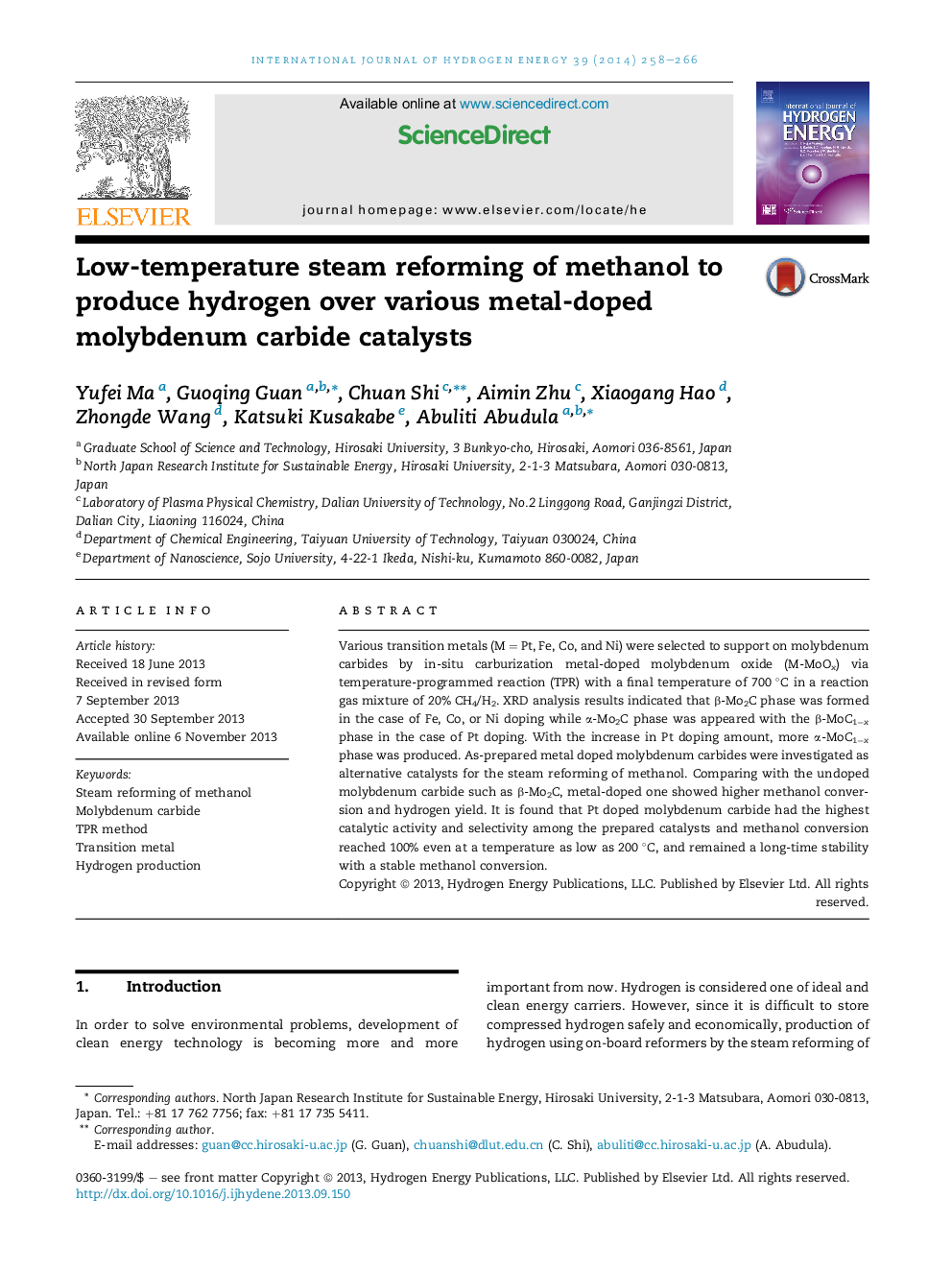| کد مقاله | کد نشریه | سال انتشار | مقاله انگلیسی | نسخه تمام متن |
|---|---|---|---|---|
| 1273937 | 1497508 | 2014 | 9 صفحه PDF | دانلود رایگان |
• Metal-doped Mo2C catalysts were successfully in-situ synthesized using TPR method.
• Pt-doped Mo2C showed high catalytic activity and selectivity at low temperatures.
• Pt-doped Mo2C remained long-time stability at a temperature in the range of 200–400 °C.
Various transition metals (M = Pt, Fe, Co, and Ni) were selected to support on molybdenum carbides by in-situ carburization metal-doped molybdenum oxide (M-MoOx) via temperature-programmed reaction (TPR) with a final temperature of 700 °C in a reaction gas mixture of 20% CH4/H2. XRD analysis results indicated that β-Mo2C phase was formed in the case of Fe, Co, or Ni doping while α-Mo2C phase was appeared with the β-MoC1−x phase in the case of Pt doping. With the increase in Pt doping amount, more α-MoC1−x phase was produced. As-prepared metal doped molybdenum carbides were investigated as alternative catalysts for the steam reforming of methanol. Comparing with the undoped molybdenum carbide such as β-Mo2C, metal-doped one showed higher methanol conversion and hydrogen yield. It is found that Pt doped molybdenum carbide had the highest catalytic activity and selectivity among the prepared catalysts and methanol conversion reached 100% even at a temperature as low as 200 °C, and remained a long-time stability with a stable methanol conversion.
Figure optionsDownload as PowerPoint slide
Journal: International Journal of Hydrogen Energy - Volume 39, Issue 1, 2 January 2014, Pages 258–266
